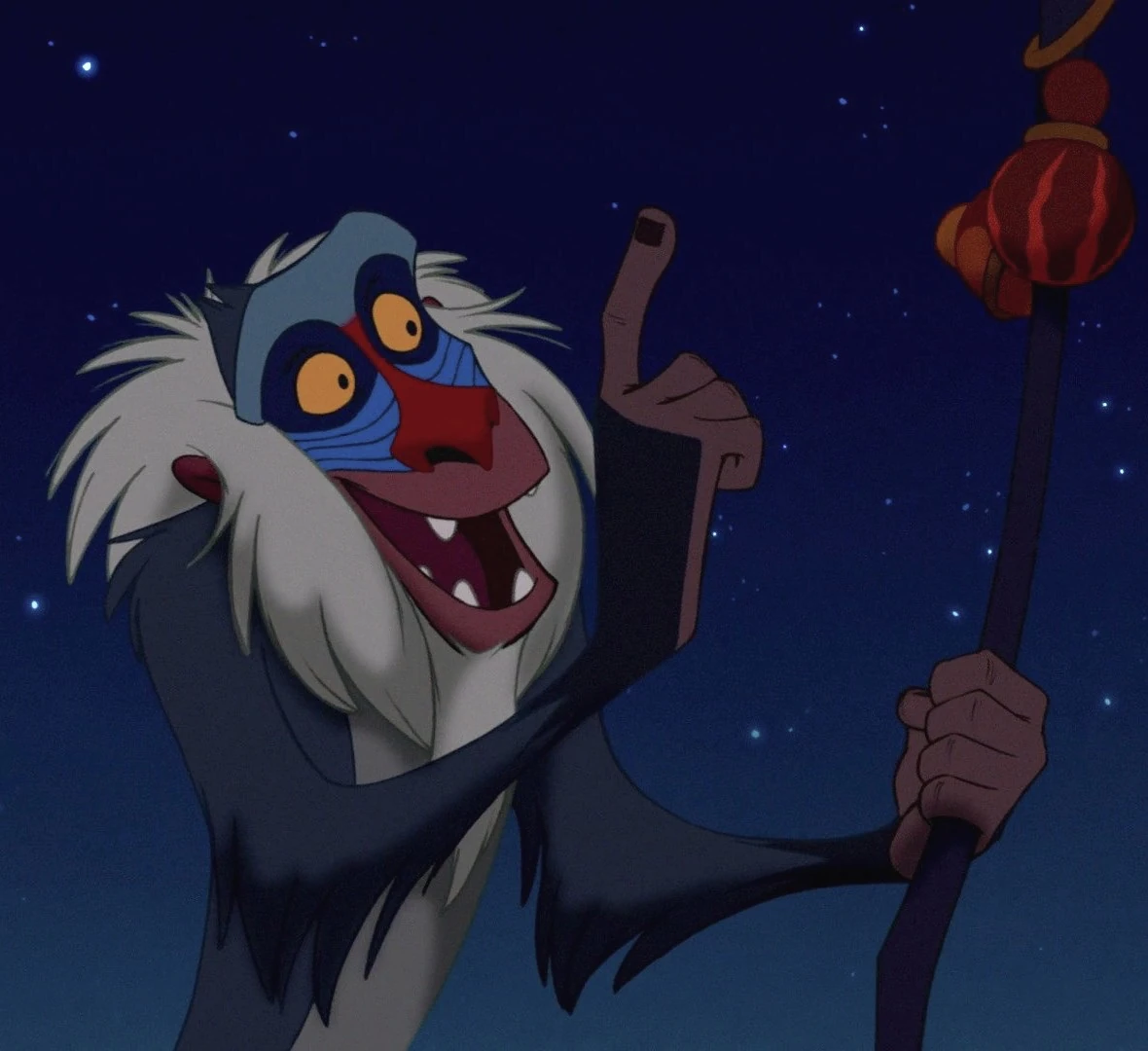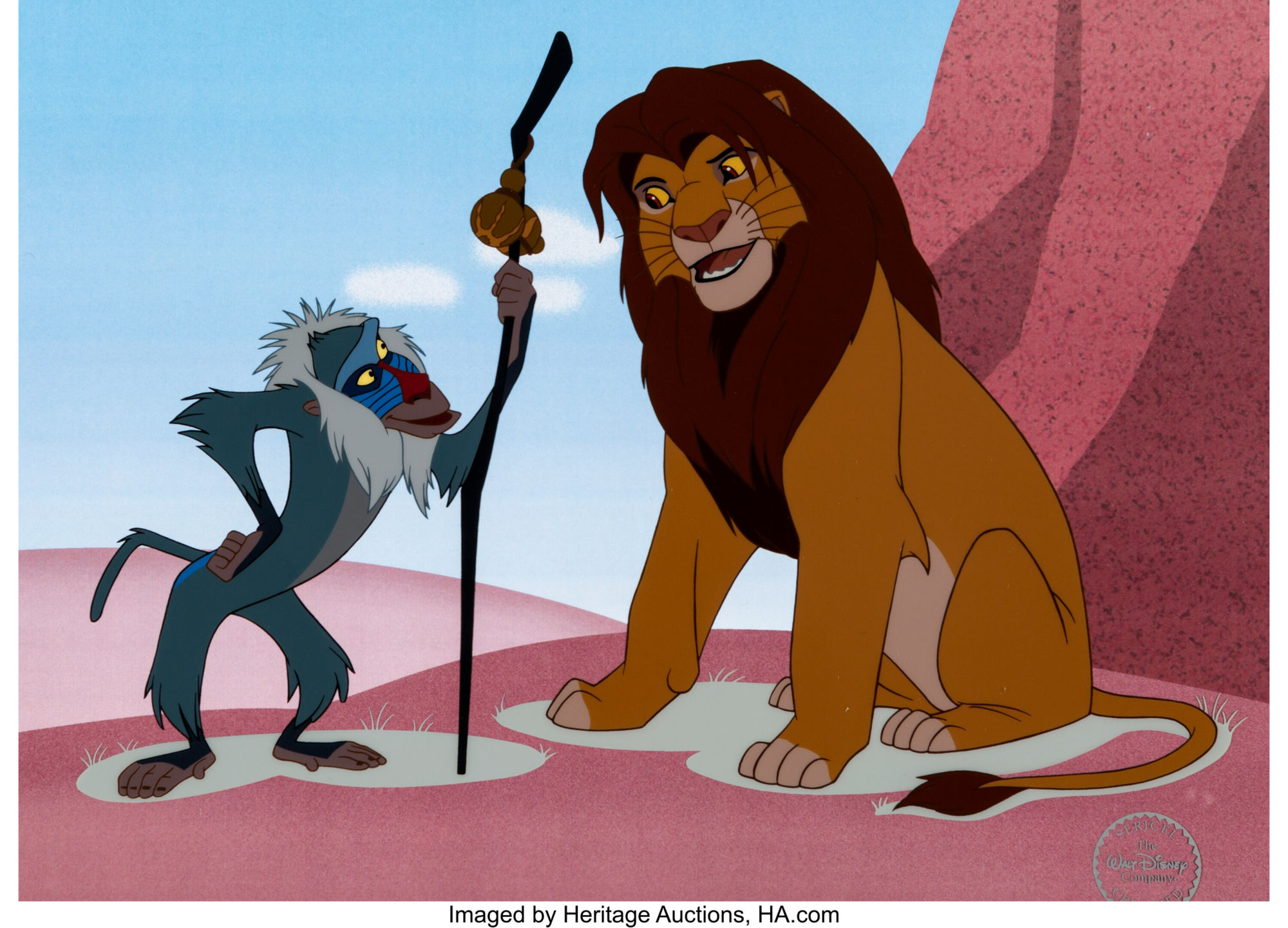Ever heard of Rafiki? If you're a fan of The Lion King, this name might ring a bell loud and clear. But there's more to Rafiki than just being a wise old baboon in one of Disney's most iconic movies. Rafiki is a symbol of wisdom, guidance, and tradition, and understanding what Rafiki truly represents can give you a deeper appreciation for African culture and its rich storytelling. So, buckle up, because we're about to dive deep into the world of Rafiki!
Rafiki isn't just a character; it's an idea, a philosophy, and a way of life. In Swahili, the word "Rafiki" means "friend," and that's exactly what the character embodies in The Lion King. He's the friend who guides Simba through life's ups and downs, offering advice, support, and a healthy dose of tough love when needed. But there's so much more to explore beyond the movies, and we're here to uncover it all.
This article will take you on a journey to discover the true essence of Rafiki, from its origins in African culture to its modern-day interpretations. Whether you're a fan of The Lion King, a lover of African traditions, or simply curious about the meaning behind this iconic name, you're in for a treat. So, let's get started!
Table of Contents
- The Origin of Rafiki
- Rafiki in African Culture
- Rafiki in The Lion King
- The Symbolism Behind Rafiki
- Key Traits of Rafiki
- Rafiki's Impact on Modern Culture
- Famous Rafiki Quotes and Their Meanings
- Rafiki and Music
- Life Lessons from Rafiki
- Conclusion
The Origin of Rafiki
Let's start with the basics. The word "Rafiki" originates from the Swahili language, which is widely spoken in East Africa. It translates to "friend," but its meaning goes beyond the literal translation. In Swahili culture, a rafiki is someone you trust, someone who has your back through thick and thin. It's not just about friendship; it's about loyalty, support, and understanding.
Rafiki isn't just a name; it's a concept that reflects the importance of community and relationships in African societies. Think of it as the glue that holds people together, especially in times of need. So when Disney named their wise old baboon "Rafiki," they weren't just picking a random name—they were tapping into a deep cultural tradition.
Why Rafiki Matters in Swahili Culture
In Swahili-speaking communities, the idea of rafiki is woven into everyday life. Friends are seen as extensions of family, and the bond between friends is often stronger than blood. This is where Rafiki's character in The Lion King draws its inspiration from. He's not just a friend to Simba; he's a mentor, a confidant, and a guide.
Here's the thing: in African cultures, friendship isn't just about having fun together. It's about being there for each other, sharing wisdom, and helping each other grow. Rafiki embodies all of these qualities, making him a perfect representation of the Swahili concept of friendship.
Rafiki in African Culture
Now let's talk about how Rafiki fits into the broader context of African culture. In many African societies, animals are often used as symbols to convey important messages. Baboons, for example, are seen as wise and spiritual creatures, much like Rafiki in The Lion King. They're often depicted as mediators between the human and spiritual worlds, which is why Rafiki plays such a crucial role in the movie.
But it's not just about baboons. The idea of a wise elder guiding the younger generation is a common theme in African folklore. Think of Rafiki as the village elder who passes down wisdom, traditions, and life lessons to the next generation. He's the keeper of knowledge, the one who ensures that the past is not forgotten.
How Rafiki Reflects African Wisdom
African cultures are rich in oral traditions, and Rafiki embodies this perfectly. His use of proverbs, rituals, and storytelling mirrors the way wisdom is passed down in many African communities. For example, when Rafiki uses the phrase "Asante sana," he's drawing from Swahili culture, where proverbs and sayings are an integral part of communication.
This connection to African traditions is what makes Rafiki so special. He's not just a character; he's a vessel for cultural knowledge and values. And that's why his message resonates with people all over the world.
Rafiki in The Lion King
Let's talk about the elephant in the room—or should I say, the baboon in the jungle? Rafiki is one of the most beloved characters in The Lion King, and for good reason. He's quirky, wise, and oh-so-entertaining. But there's more to Rafiki than his antics and stick-swinging dance moves. He's a key player in Simba's journey, offering guidance, support, and a few tough truths along the way.
Rafiki's role in The Lion King is multifaceted. He's the shaman, the mentor, and the storyteller all rolled into one. From his iconic introduction in the Circle of Life sequence to his final appearance in the movie, Rafiki is there to guide Simba through life's challenges. And let's not forget his famous line: "You see, Simba, to find your future, you must discover your past." Now that's some serious wisdom right there.
Rafiki's Journey in The Lion King
Here's a quick breakdown of Rafiki's journey in the movie:
- Circle of Life: Rafiki performs the ritual that welcomes Simba into the Pride Lands, setting the stage for the story.
- Simba's Return: When Simba is lost and struggling, Rafiki appears to remind him of who he truly is and what he needs to do.
- Final Celebration: Rafiki closes the movie by presenting Simba's newborn cub, completing the circle of life.
Each of these moments highlights Rafiki's importance in the story and his role as a guiding force for Simba.
The Symbolism Behind Rafiki
Rafiki is more than just a character; he's a symbol. He represents wisdom, tradition, and the connection between the past and the present. His staff, for example, is a symbol of his authority as a spiritual leader. It's not just a stick; it's a tool that connects him to the spiritual world and allows him to perform rituals.
But Rafiki's symbolism goes even deeper. He represents the idea that we all have a rafiki in our lives—a friend, mentor, or guide who helps us navigate life's challenges. Whether it's a family member, a teacher, or a close friend, we all rely on others to help us grow and succeed.
Key Symbolic Elements of Rafiki
- The Staff: Represents authority, wisdom, and connection to the spiritual world.
- The Paint: Rafiki's use of paint to draw symbols on Simba's forehead is a nod to African rituals and ceremonies.
- The Proverbs: His use of proverbs reflects the importance of oral traditions in African cultures.
Key Traits of Rafiki
So what makes Rafiki so special? It's not just his wisdom and guidance; it's the combination of traits that make him such a beloved character. Here are some of his key traits:
- Wisdom: Rafiki knows exactly what to say and when to say it. He's the voice of reason in a chaotic world.
- Humor: Let's be real—Rafiki is hilarious. His quirky personality and slapstick humor make him a joy to watch.
- Patience: Rafiki doesn't rush things. He takes his time to guide Simba and ensure that he's ready for his destiny.
- Empathy: Rafiki understands Simba's struggles and offers support in a way that's both gentle and firm.
These traits make Rafiki a well-rounded character who resonates with audiences of all ages.
Rafiki's Impact on Modern Culture
Rafiki's influence extends far beyond The Lion King. He's become a cultural icon, inspiring everything from merchandise to memes. But his impact goes deeper than that. Rafiki has become a symbol of friendship, wisdom, and guidance in modern culture. He reminds us of the importance of having a rafiki in our lives—someone who supports us, challenges us, and helps us grow.
In a world that's increasingly fast-paced and disconnected, Rafiki's message of friendship and community is more relevant than ever. He reminds us to slow down, appreciate the people in our lives, and seek wisdom from those who have walked the path before us.
Rafiki in Pop Culture
Rafiki has made appearances in various forms of media over the years. From video games to stage productions, his influence is everywhere. One of the most notable examples is the Broadway adaptation of The Lion King, where Rafiki's role is brought to life in stunning detail. His rituals, dances, and wisdom are showcased in a way that captivates audiences and brings African culture to the forefront.
Famous Rafiki Quotes and Their Meanings
Let's take a moment to appreciate some of Rafiki's most famous quotes and what they mean:
- "Asante sana, squash banana, wewe nugu, mimi hapana!" This playful insult is a reminder that sometimes humor can break the tension and lighten the mood.
- "You see, Simba, to find your future, you must discover your past." This line highlights the importance of learning from our mistakes and embracing our history.
- "It doesn't matter. It's in the past!" Rafiki's response to Simba's guilt is a powerful reminder that dwelling on the past won't change it; what matters is how we move forward.
Each of these quotes offers a valuable life lesson that resonates with audiences of all ages.
Rafiki and Music
Music plays a huge role in The Lion King, and Rafiki is no exception. His connection to music is evident in the Circle of Life sequence, where he leads the animals in a powerful and uplifting celebration. But Rafiki's relationship with music goes beyond the movie. In African cultures, music is often used as a tool for storytelling, healing, and connection, and Rafiki embodies this perfectly.
One of the most iconic moments in The Lion King is when Rafiki sings "Asante sana" during the opening sequence. This song not only introduces Rafiki to the audience but also sets the tone for the movie's celebration of African culture.
Music as a Cultural Tool
In many African societies, music is used to pass down stories, traditions, and values from one generation to the next. Rafiki's use of music in The Lion King reflects this cultural practice. Whether it's the Circle of Life sequence or the final celebration, music is a powerful tool that brings people together and creates a sense of unity.
Life Lessons from Rafiki
Rafiki isn't just a character; he's a teacher. Here are some life lessons we can learn from him:
- Embrace the Past: Understanding our history is key to moving forward.
- Find Your Inner Strength: We all have the power to overcome challenges if we believe in ourselves.
- Seek Wisdom: Surround yourself with people who can offer guidance and support.
- Laugh and Have Fun: Life is too short to take everything too seriously.
These lessons are timeless and universal, which is why Rafiki's message continues to resonate with audiences around the world.
Conclusion
In conclusion, Rafiki is more than just a character in The Lion King. He's a symbol of wisdom, friendship, and tradition that transcends the boundaries of


